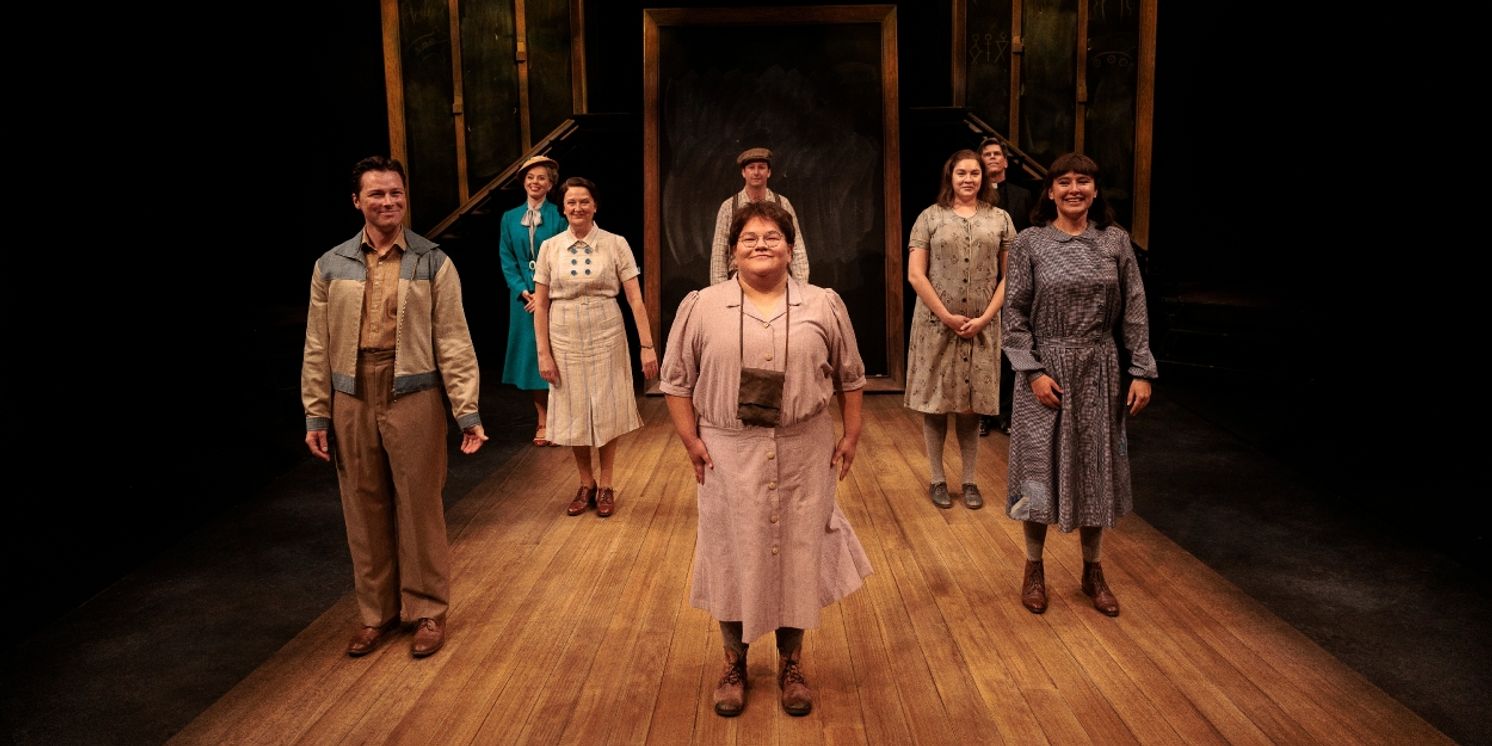Review: The World Premiere of 1939 at the Stratford Festival is a Moving and Powerful 'Must-See' Play

If you live in Stratford, Ontario, you have likely heard the buzz around town about a new play at the Stratford Festival's Studio Theatre. Written by Jani Lauzon and Kaitlyn Riordan, and also directed by Lauzon, the world premiere of 1939 had audiences springing to their feet to show just how moved they were by this beautiful, powerful, and witty piece of new work. The writers and cast very evidently put a lot of consideration into identifying the stories they do and do not wish to tell with this subject matter. It is also evident through the program notes that a lot of care went into developing this play with the guidance of Indigenous Elders and Residential School Survivors. The story told in this play is fictional, but this moment in time is very real, and the respect for that fact is constantly felt throughout this production.
1939 tells the story of five indigenous children at an Anglican Residential School in Northern Ontario. They have been tasked by their teacher with putting on a production of ALL'S WELL THAT ENDS WELL for the visit of King George VI. The students begin to relate to the play by identifying parallels in their own lives and soon, despite the best attempts of the staff at the school to foster the exact opposite, they in turn begin to develop a deeper connection to their respective cultures.
The specific school and people depicted have been fictionalized for this story, but much care has been taken to accurately depict this devastating, shameful, and important-to-acknowledge moment in Canadian history. That said, this play is not specifically about the abuses that took place within residential schools - though it certainly does not shy away from acknowledging them. Instead, this story aims to give layers and personalities to individuals who, sadly tend to be thought of as a monolithic group, victimized by Canadian society at large. The focus of this play is decidedly not on the perpetrators of abuse or the abuse they inflicted, but instead on the existence of unique personalities, dreams, goals and stories of every student at these schools.
All five students in this play are fully developed and fleshed out characters, and every single performer is stunning in their portrayal. As secret siblings, Joseph and Beth Summers, Richard Comeau and Tara Sky portray their characters' conflicting viewpoints and goals in a way where both of their motivations are understood by the audience and the rift this creates between them is heartbreaking. It is fascinating to witness Wahsonti:io Kirby's Evelyne gain her voice as the play progresses, and her performance as Helena in the play within a play leaves you wanting to see her in the actual role one day. It is through Kathleen MacLean's Susan that audiences catch glimpses of the physical abuse that so many students had to endure. MacLean gives Susan a stubborn stoicism with a brave and mischievous glint in her eye. John Wamsley portrays Jean Delorme - a young Metis student with a knack for both hockey and Shakespeare who is stuck between two cultures while not feeling like he belongs to either one. In the midst of the challenging circumstances of a residential school, these five students experience self-discovery, young love, and all the pains of growing up through each other and through the words of Shakespeare.
As the perhaps well-meaning, but dangerously ignorant staff of the school, Sarah Dodd and Mike Shara are both excellent as well. They both provide many a laugh (often at their own characters' expense) and the humour ranges from clever Shakespeare puns, to Canadian stereotypes, to a running potty humour bit that quite honestly, suprisingly works very well (and this is from someone who typically isn't tickled by that kind of humour). Jacklyn Francis is also great as the journalist (humorously named Mrs. MacBeth) whose story about the production of ALL'S WELL THAT ENDS WELL leads the school to have no choice but to lean in (albeit offensively) to the indigenous background of the performers.
The set design by Joanna Yu is incredibly effective. The large blackboards quickly set us within a school and the literal erasure of indigenous words and symbols from those blackboards throughout the play, never lets us forget what these schools were trying to do. A moment near the end of the play involving these blackboards is incredibly moving and continues to elicit chills as I think about it days later.
Credit to Festival Artistic Director Antoni Cimolino for programming this play in the same season that the Stratford Festival is putting on ALL'S WELL THAT ENDS WELL. Having that production fresh in one's mind certainly adds to the play-within-a-play experience. I suspect it would also be fascinating to take in ALL'S WELL... shortly after seeing 1939 as well. Another piece of programming for this show is the Reflection Space that is available to audiences. Here, audiences can view an art installation, and speak with indigenous educators about our history.
Everyone in this company has a moment to shine in 1939. From the comedy of the characters putting on a play to the powerful moments of self discovery and rediscovery that each indigenous character experiences, this play is not to be missed.
1939 Continues in Repertory at the Studio Theatre until October 29th.
Photo Credit: David Hou
Reader Reviews
Videos

